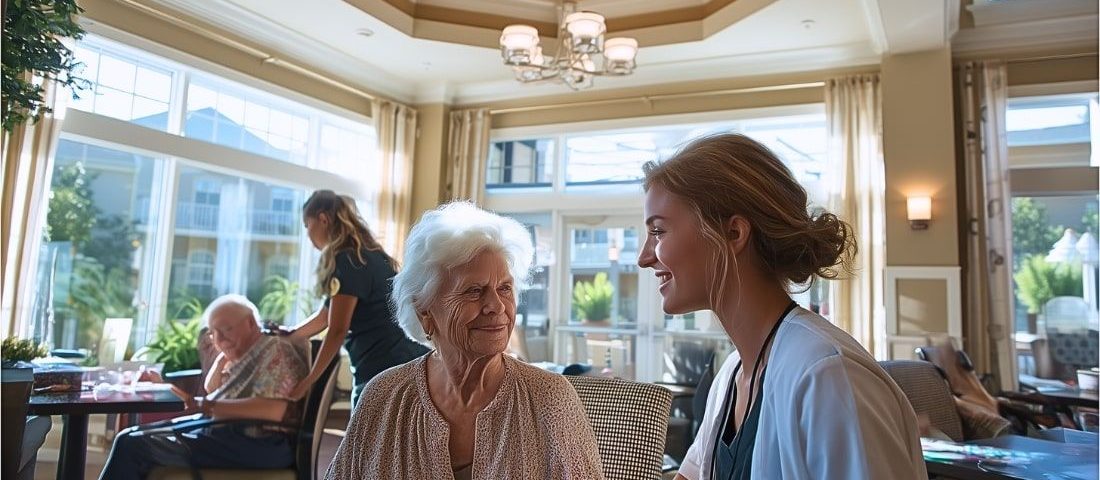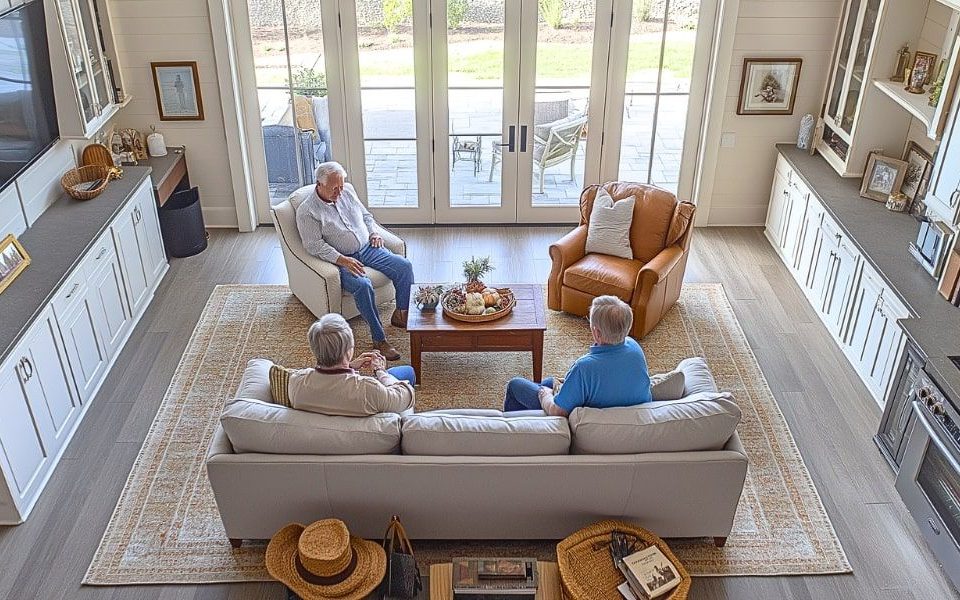
When a parent is diagnosed with dementia, your role as their child often changes overnight. You’re no longer just family—you become a caregiver, advocate, and protector. The emotional weight is heavy, and the daily responsibilities can quickly become overwhelming.
More than 7 million older adults in the U.S. live with Alzheimer’s or another form of dementia. In many cases, these individuals eventually require a move to senior care. However, families often worry about issues like safety and care when their loved one moves away.
This post will explore six ways senior living staff ensure quality care for seniors with dementia.
6 Ways Senior Living Staff Expertly Care for Seniors with Dementia
1. Deep Understanding of Dementia’s Nuances
Senior living professionals, especially in memory care communities, have a deep understanding of dementia. They have training to care for residents with Alzheimer’s, Lewy Body dementia, vascular dementia, and other forms of cognitive decline.
This training enables them to interpret behaviors, identify changes early, and adjust care over time. They understand how dementia affects speech, mood, mobility, and memory. That allows them to base daily care decisions on knowledge and practical insights, rather than instinct or guesswork.
This expertise enables personalized care, reducing fear and confusion for both residents and their families.
2. Advanced Communication and De-escalation Techniques
As dementia progresses, communication becomes harder. But connection is still possible, and essential. Senior living staff understand the best practices for communicating with seniors who have dementia.
Staff use clear language and calm, reassuring tones. They avoid phrases like “Don’t you remember?” and focus on being present and patient.
They also rely on non-verbal cues. A gentle touch, eye contact, or smile often says more than words. When a resident is distressed, they validate the resident’s feelings and gently redirect their attention.
These techniques preserve dignity and help residents feel safe and understood.
3. Personalized Care Based on Each Individual’s Story
No one wants their loved one treated like just another patient. That’s why memory care focuses on person-centered care.
Teams learn each resident’s life story, including past jobs, hobbies, and meaningful routines. Was your mom a teacher? She might enjoy helping with activities. Did your dad love jazz? Music sessions may include his favorite records.
These personal touches help maintain identity, reduce anxiety, and create moments of joy and happiness.
4. Safe, Supportive Community Design
Wandering, falls, and confusion are common in dementia care. That’s why community design is so important.
At Enrich Senior Living, residents enjoy secure indoor and outdoor areas, complete with visual cues that support their independence. Layouts are easy to navigate. Doors are discreetly secured. Lighting helps reduce evening confusion.
The environment keeps residents safe without making them feel confined. Families can rest easier knowing their loved one has freedom within a protected space.
5. Structured Routines and Meaningful Engagement
Routine brings comfort. Predictable daily schedules help reduce stress and improve mood for people with dementia.
Senior living staff guide residents through consistent mealtimes, rest periods, and daily activities. Teams design various engagement activities for seniors with memory loss. They include music therapy, arts and crafts, movement classes, and even gardening.
These activities aren’t just to fill time. Care professionals design them to support cognitive function, boost confidence, and create meaningful moments of connection.
6. 24/7 Professional Supervision and Health Management
Families often worry about medical needs. In memory care communities, trained staff are available around the clock to monitor health and respond quickly.
They help with medication management to ensure residents take doses accurately and on time. Teams collaborate with doctors and specialists to ensure coordinated, up-to-date care. This level of support is difficult to match at home.
Most importantly, staff members have training to notice subtle changes before they become emergencies. That kind of vigilance offers peace of mind no family can put a price on.
You Deserve to Be the Daughter or Son Again
Caring for a parent with dementia is an act of love. But it can also lead to burnout, guilt, and isolation. Placing a loved one in expert memory care doesn’t mean stepping away. It means stepping into a new, healthier role. One where you can focus on quality time, not constant supervision. At Enrich Senior Living, families are always welcome, supported, and involved.
Would you like to learn more about Enrich Senior Living? Schedule a tour with our team. We’d be happy to show you around and answer any questions you may have.



